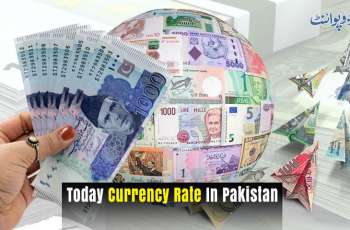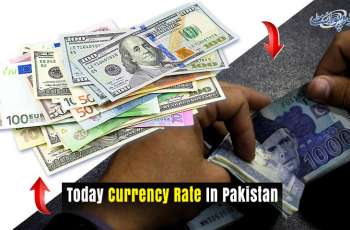MOSCOW (Pakistan Point News / Sputnik - 21st September, 2018) The African Development Bank (AfDB) will invest in the growth of African economies by way of adapting its projects to support the African Continental Free Trade Area (AfCFTA) and reducing the infrastructure development financing gap, Akinwumi Adesina, the president of the AfDB, told Sputnik on Friday.
Adesina stated that the prospects for growth in African economies remain strong, despite decreasing commodity prices.
"I am fully convinced that African economies are very resilient. I believe that many of them, in coping with the age of commodity price decline, that they have to deal with, are increasingly diversifying their economies into agriculture, into the service industry - that is playing a big role, and also in greater amounts into manufacturing sector," he said.
The International Monetary Fund (IMF) predicted in July that sub-Saharan Africa's economic growth would go up by 0.4 percent next year from the 3.4 percent growth projected for 2018. The IMF stated that this rate of growth would mean an increase in per capita income.
ADDRESSING INFRASTRUCTURE FINANCING GAP
The AfDB president noted that the greatest challenge facing African economies was the multibillion Dollar infrastructure development gap.
"I think the most critical thing for Africa is to address the structural challenges that they have, which is providing power, investing in infrastructure, which continues to be a limiting factor. And at the African Development Bank we estimate that infrastructure development financing gap in Africa is anything between $68-$108 billion a year, and so it is closing that infrastructure gap that is very, very important," Adesina said.
In order to close the financing gap, Adesina explained that half of the $8-$10 billion investment budget for Africa from the AfDB would be dedicated to infrastructure, including a $12 billion investment in the African power sector which intends to leverage $45-$50 billion from the private sector and through co-financing arrangements for this cause.
He also pointed out that the AfDB would invest $24 billion in Africa's agriculture, an industry that will take on more than half the burden of feeding 9 billion people worldwide by 2050.
"If you also take the case of agriculture, Africa today has 65 percent of all the cultivated arable land left to feed 9 billion people in the world by 2050. So what Africa does with agriculture will determine the future of food. To do that we need to invest more in irrigation, in rural roads, in logistics, and also in agro-processing and agro-aligned industries. So the African Development Bank, we are investing $24 billion in the agriculture sector over the next ten years to help deal with that," Adesina said.
AfDB PROJECTS WILL SUPPORT AfCFTA
The AfDB has adapted its projects to support the AfCFTA, the agreement for which has been ratified by seven countries and brokered by the African Union to enable a single continental market for goods and services with free movement for investors and investments.
Adesina said that the AfCFTA agreement, if successfully ratified by 22 states before the January 2019 implementation deadline, will affect huge changes to the trade dynamic in Africa.
"If you take a look at the AfCFTA, for Africa it is a game changer. That continental free trade area will make African economies have a collective GDP of probably around $3.4 trillion. It will allow intra-African trade to grow by about $35 billion every year. That is actually quite huge," Adesina noted.
Adesina went on to mention that one of the three things that the AfDB has done to adapt its projects to the AfCFTA has been to invest in trade facilitation.
"First and foremost is that the African Development Bank continues to invest a lot more in trade finance because trade facilitation is going to play a big role in making sure that that can happen. We have just invested an additional $500 million in [the African Export-Import Bank] to expand our access to trade finance in Africa," Adesina said.
The bank will also, according to Adesina, invest in infrastructure that will facilitate multilateral trade between African countries and has developed the African visa Index to promote the mobility of people through information sharing about border control legislation.
The AfDB president also noted that the bank continues to support soft infrastructure projects through enabling streamlined border crossing in African states.
"We are also supporting, by the way, not just hard infrastructure but also soft infrastructure in establishing for example a one-stop-shop that makes it easier for people to do their customs and clearance," he said.
According to the AfDB 2017 Annual Report published in May, the bank has increased its net operating income by 29.6 percent from year to year and granted UA 5.43 billion (AfDB project Currency) in total disbursements, exceeding the bank's own target.



